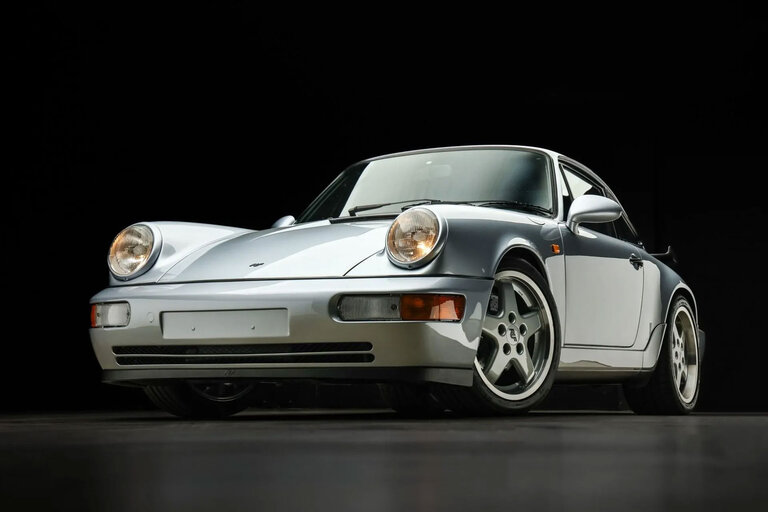
Although there is no widely accepted definition for a classic car, they are usually vehicles that cost more than they did when they were brand-new and that may be considered to be collectible items. Using an ordinary auto insurance policy on a classic car may not be enough to cover for potential instances of damage or theft.
What Vehicles Get Classic Car Insurance?
There are several main categories of vehicles that may require classic car insurance. They are:
- Older cars, typically at least 25 years old
- Vehicles with special modifications
- Cars that are considered to be exotic and glamorous
- Old muscle cars
- Classic trucks
- Motorcycles, military vehicles, and tractors
According to the Insurance Information Institute, the usual requirements that qualify a vehicle for a classic car insurance policy are:
- It’s not being driven regularly. A car that’s used daily on common tasks cannot usually be considered for classic car insurance, as some policies have clear limitations on how many miles it can be driven in a certain time period and may require proof from the owner that the car is properly stored in times of inactivity. Insurance companies may also ask a car’s owner for proof that they have another vehicle specifically for everyday use.
- It can be taken to classic car shows and gatherings. Although most insurance policies only allow limited use of classic cars, they can usually be taken to auto shows and gatherings, even if it implies long drives. Some insurers don’t allow that, however, while others go the opposite way and provide specific coverage for exactly these types of events. If you plan on taking your classic car to this kind of meeting, it may be a good idea to ask car insurers what their policy is before committing to an offer.
- It needs to be safely stored. When you’re not driving it, the classic car must be stored in a safe and appropriate space, like a private garage or storage unit.
- You should have a good driving record. If you have a history of serious driving offenses, such as DUI or DWI, reckless driving, or multiple speeding tickets, you may not be able to qualify for classic car insurance, according to HG.org.
- The car usually needs to have a certain age. The typical minimum age for a classic car is 10 years, while an antique usually needs to be at least 25 years old, with companies usually having slightly different limits. However, highly exotic cars, like Ferraris, can qualify even if they’re new.
- The owner has another vehicle. Most insurance companies expect classic car owners to have a different vehicle for everyday use.
What Should Your Classic Car Insurance Include?
The most important aspects of a classic car insurance policy are:
- The car’s estimated price. Given that each classic car is special, there is no straightforward way of determining its value. Therefore, the first issue that the car’s owner and the insurance company need to agree on is how much it’s worth. When determining that, it’s important to remember that, unlike ordinary cars, which depreciate in value since the day they are bought, classic cars usually grow in value as they get older.
- Specialized care for your car. Farmers states that your classic car insurance policy should include the possibility to have it repaired or maintained by mechanics that are specialized in that specific type of vehicle, although it may cost significantly more than a regular auto garage.
- Coverage for spare parts and towing services. Given the fact that classic cars may need to be transported over long distances, towing coverage is very important in some cases. Also, considering the scarcity and high prices of classic car components makes coverage for them an important part of the policy.
- Coverage for windshield and other safety glass-related issues. Your classic car policy can help you replace or fix damaged windshields or other windows without a deductible.
What Are the Main Differences Between Regular and Classic Car Insurance?
Insurify reports that the No. 1 difference between ordinary car insurance policies and those specifically created for classic cars is created by the fact that normal cars depreciate over time, while classic cars tend to become more valuable as time goes by. Also, a classic car’s value is not only determined by its condition and the market values of similar vehicles but also the amount of money that the owner has invested in restoration and enhancement operations.
Given the fact that classic cars are more rarely used and better protected than normal ones, their insurance policy costs are usually lower. Also, the covered amount is constantly changing as the car gets older and more valuable or when the owner adds new elements to it. ValuePenguin estimates that classic car insurance costs 36 percent less on average. Although the exact rates for both depend on many different factors, odds are that the insurance for your classic car will be lower than for your everyday car. However, most companies only allow full coverage for classic cars.
What Qualifies as a Classic Car?
Although different insurance companies have different definitions, the most common criteria for classic cars, as listed by Investopedia, are:
- Cars that are at least 25 years old
- Extensively modified vehicles
- Vintage trucks
- Exotic cars
Also, the cars must usually be in at least a decent condition and with many of their original parts.
How Can You Get a Discount On a Classic Car Insurance Policy?
The most common criteria for a discount are:
- Having more than one insurance policy contract with the same company
- Insuring multiple classic vehicles
- Having no incidents on your driving record
- Having a security device fitted to your classic car
- Taking defensive driving classes, per SafeMotorist.com
- Choosing a comprehensive-only insurance option
Getting insurance for your classic car is usually a very important step considering its rising value and the relatively high costs of restoring, repairing, and maintaining it in good condition. When looking for an appropriate classic car insurance policy, it’s usually best to do some research on what kind of policy you need and what local companies can give you a fair price.
Sources:
Classic Car Insurance: What Is It? How Does It Work?
10 Best Companies for Classic Car Insurance (2021)
Classic & Collector Car Insurance
What is the Difference Between DUI and DWI?
This content is created and maintained by a third party, and imported onto this page to help users provide their email addresses. You may be able to find more information about this and similar content at piano.io
Source link





